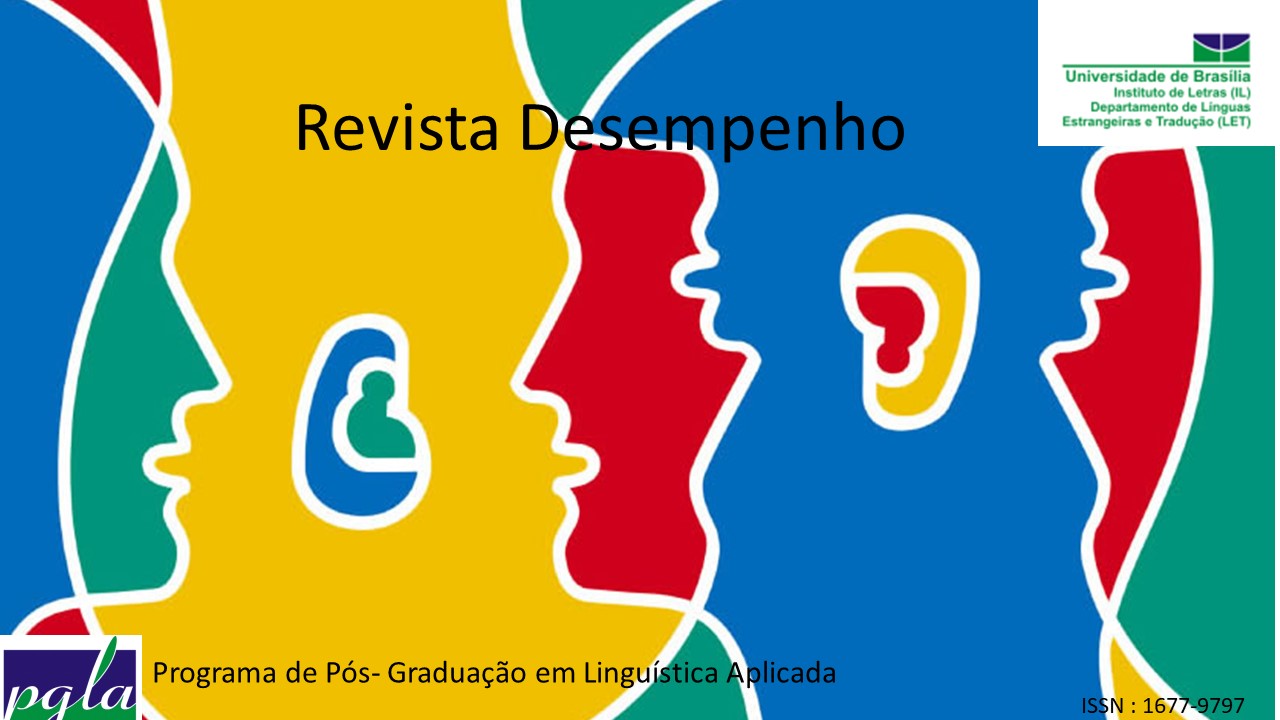Language teacher: a reflection on identity and its role as an agent
Abstract
This article aims to discuss the contributions of reflections on identity to make language teachers more aware of their role as educator and agent of language policies. With regard to methodological procedures, this work results from a bibliographical research. For this, we initially discussed concepts of identity, relying on authors such as HALL, 1990, 2006; ROMERO, 2008; VIEIRA, 1999; WOODWARD, 2011; MOITA LOPES, 2003; NORTON and EARLY, 2015, as well as on agency (AHEARN, 2000, 2001; DURANTI, 2004; RAJAGOPALAN, 2013) and language policies (RAJAGOPALAN, 2013, 2014; CALVET, 2007). Next, we talk about the implications of the language teacher's identity constructions for the exercise of his profession, more specifically in what corresponds to his role as agent of linguistic policies. Finally, we reflect on the multiple role of the language teacher, highlighting his role as educator, citizen and agent of language policies. We conclude that through continuous reflections, especially on his identity, the language teacher becomes more aware of his role as educator and linguistic agent, which makes him more critical in order to be aware of the intentions , as well as the effects generated by their speeches and choices.
Downloads
Downloads
Published
How to Cite
Issue
Section
License
Autores que publicam nesta revista concordam com os seguintes termos:
Autores mantém os direitos autorais e concedem à revista o direito de primeira publicação, sendo o trabalho simultaneamente licenciado sob a Creative Commons Attribution License o que permite o compartilhamento do trabalho com reconhecimento da autoria do trabalho e publicação inicial nesta revista.
Autores têm autorização para assumir contratos adicionais separadamente, para distribuição não-exclusiva da versão do trabalho publicada nesta revista (ex.: publicar em repositório institucional ou como capítulo de livro), com reconhecimento de autoria e publicação inicial nesta revista.
Autores têm permissão e são estimulados a publicar e distribuir seu trabalho online (ex.: em repositórios institucionais ou na sua página pessoal) a qualquer ponto antes ou durante o processo editorial, já que isso pode gerar alterações produtivas, bem como aumentar o impacto e a citação do trabalho publicado (Veja O Efeito do Acesso Livre).






